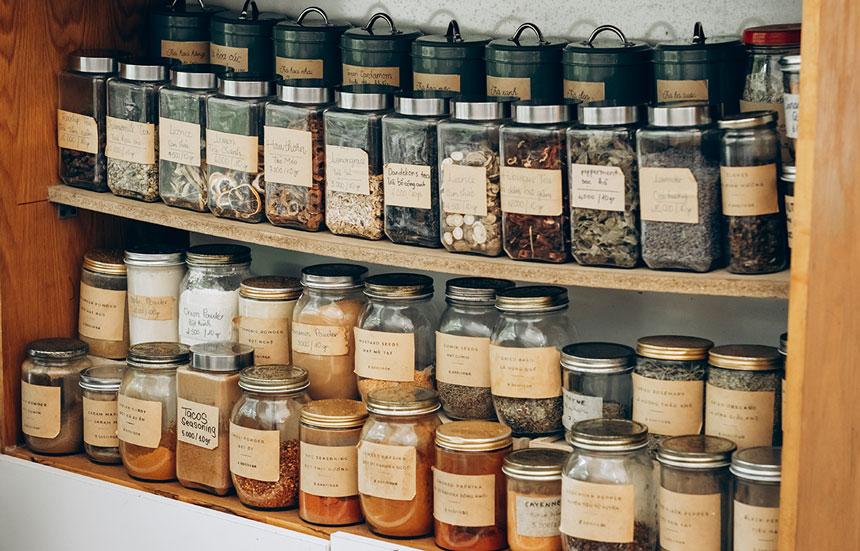4 Tips to Help Control Heavy Metal Exposure from Herbs and Spices

Herbs and spices are generally considered a healthier alternative to America’s most popular flavoring agent salt, and many, in fact, have health benefits of their owns. They may be rich in healthy compounds called phytonutrients including carotenoids, flavonoids and isoflavones.
Unfortunately, some herbs and spices may also be rich in heavy metals, which can be harmful to our health.
In 2021 a Consumer Reports (CR) study found that many herbs and spices have high contents of heavy metals such as arsenic, cadmium and lead. CR tested 15 types of dried herbs and spices include basil, black pepper, chili powder, coriander, cumin, curry powder, garlic powder, ginger, oregano, turmeric and white pepper from national and private-label brands such as McCormick, Trader Joe's, Simply Organic, Whole Foods, Morton & Bassett and Great Value (Walmart). Almost a third of the 126 products they tested had heavy metal levels high enough to raise health concerns.
Earlier in 2024, the U.S. Food and Drug Administration (FDA) issued a recall of ground cinnamon and cinnamon-containing foods due to heavy metal contamination. Other studies conducted over the last decade have found that some culinary herbs and spices are tainted with heavy metals, including zinc and copper.
What Are Heavy Metals?
Heavy metal is a term used to describe a metallic chemical element with a relatively high density that’s toxic or poisonous at low concentrations. Examples include mercury, cadmium, arsenic, chromium, thallium and lead. They occur naturally in the environment and seep into water and soil. But industrial and environmental pollution, fertilizers and pesticides can raise levels.
Plants, including herbs, can absorb these metals. So can the parts of those plants that spices are derived from including roots, rhizomes, stems, leaves, bark, flowers, fruits and seeds.
Once ingested, the metals can bind to cells and interfere with organ function, possibly causing symptoms like fatigue, anxiety, depression, memory loss and difficulty concentrating. Long-term regular consumption of heavy metals can damage the gastrointestinal, renal (kidneys), cardiovascular, nervous and immune systems and possibly cause birth defects, skin lesions and cancer, according to a study published in Frontiers of Pharmacology. They’ve also been linked to a gradual degeneration of physical, muscular and neurological processes that imitate diseases such as multiple sclerosis, Parkinson’s disease, Alzheimer’s disease and muscular dystrophy.
4 Tips to Help You Lower Your Exposure
Should you forgo dietary herbs and spices? The answer is no.
“Herbs and spices have health benefits. A few examples include cinnamon, which is credited with managing blood pressure and blood sugar. Turmeric has anti-inflammatory properties and cayenne pepper may have anti-cancer benefits,” says Bernard Kaminetsky, MD, medical director, MDVIP. “You can take steps to help lower your exposure to heavy metals.”
Try these tips:
- Select brands with lower concentration of heavy metals. CR reported that McCormick, Spice Islands, Simply Organic, Great Value and Morton & Bassett had the lowest levels of heavy metals. These brands fell into the no concern or some concern categories.
- Use a variety. Some herbs and spices have higher levels of heavy metals than others. Using several types of herbs and spices and seasoning “blends” can help mitigate your intake of contaminated herbs and spices.
- Grow your own. This can help prevent heavy metal accumulation from pesticides, fertilizers and pollution.
- Discard recalled products. Simply throw away your recalled products and follow FDA instructions.
If you’re concerned about heavy mental toxicity, learn more about it by reading this article from Cleveland Clinic. You also can talk to your doctor.
Don’t have a primary care physician? Consider joining an MDVIP-affiliated practice. MDVIP-affiliated physicians have more time to help you in your pursuit of a healthier lifestyle. Find a physician near you and begin your partnership in health »


